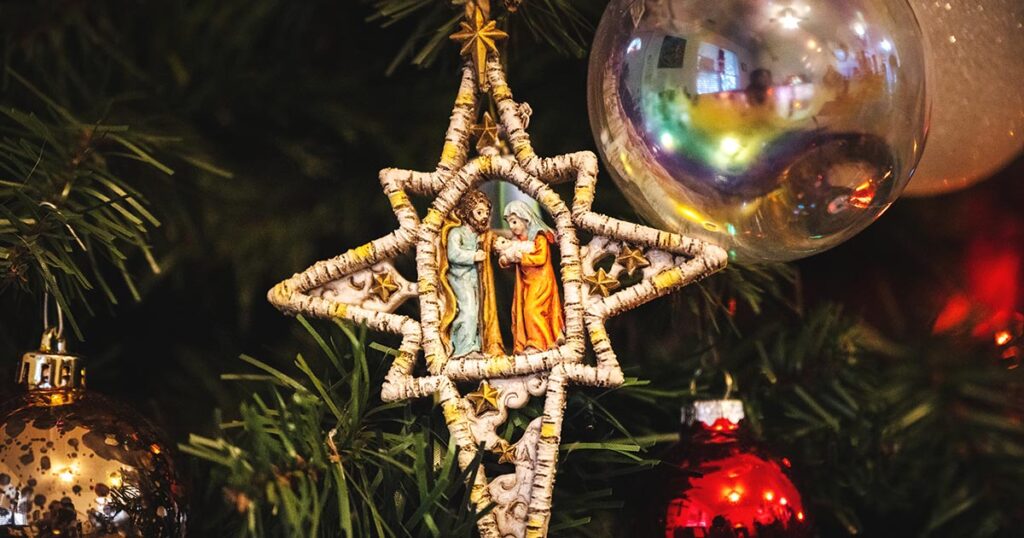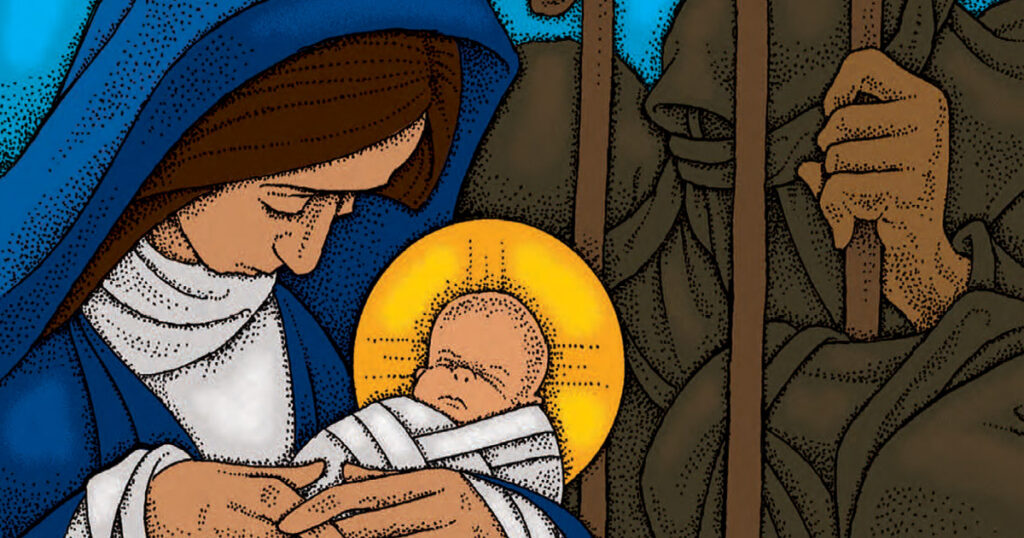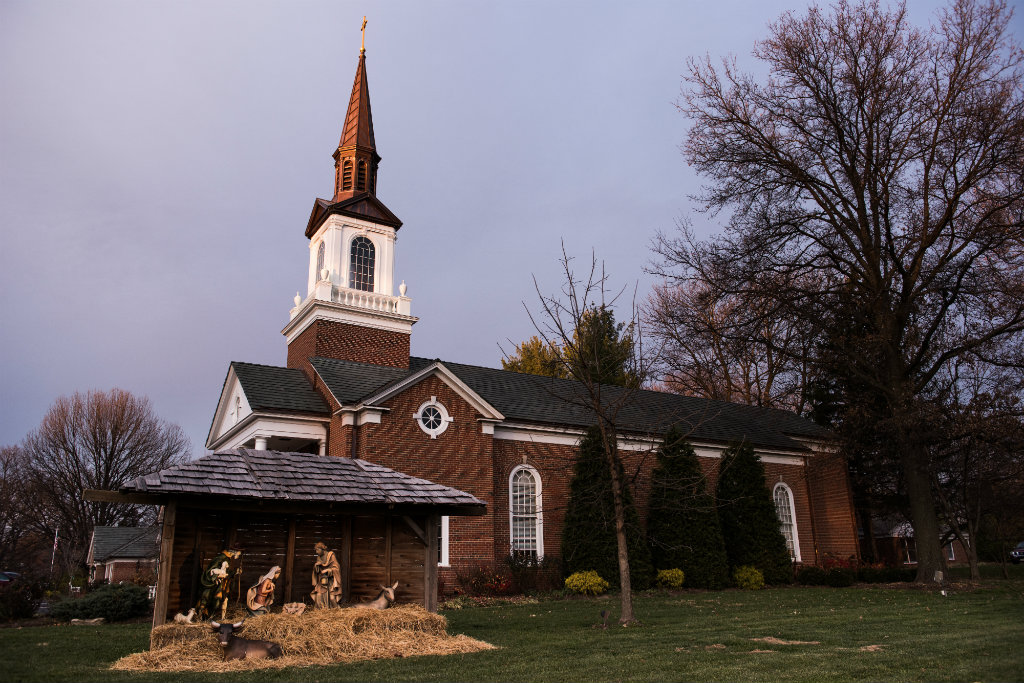Andy Williams famously sang, “It’s the most wonderful time of the year!” Ironically, even as we hear that song everywhere this time of year, we are also inundated, on TV and online, in magazines and newspapers, with the “shocking” idea that, while we don’t really know when Jesus was born, it definitely wasn’t December 25.
There are three popular objections to the traditional date of Jesus’ birth: the Bible doesn’t say December 25, the shepherds wouldn’t have been out at night in late December, and the church simply took over and Christianized a preexisting pagan festival. This third objection has been repeated so often and in so many ways that even many pious, conservative, Bible-believing Christians have accepted it.
However, what if I told you that December 25 probably was the day on which the Lord Jesus was born? What if I told you that the evidence actually does point to December 25?
Objection 1: The Bible doesn’t specify December 25
True enough. It doesn’t. But St. Luke is a historian. He tells us he interviewed eyewitnesses and researched the facts (Luke 1:1–4). He records that Zechariah, father of St. John the Baptist, was a priest “of the division of Abijah” (Luke 1:5). In 1 Chronicles 24, we read that David organized the divisions of priests and assigned times for their service. Each division would have served twice a year in the temple for about a week at a time. The division of Abijah was assigned the 8th and 32nd rotations.
This would put Zechariah’s group on duty around the Day of Atonement (Sept. 22–30). During this week, the angel Gabriel appeared to Zechariah, and when he returned home from the temple, John the Baptist was conceived (Luke 1:24). That would put John’s birth in late June — and from time immemorial, the church has celebrated John’s birth on June 24.
But St. Luke’s chronology doesn’t stop there. Six months after Gabriel appeared to Zechariah in the temple, Gabriel was sent to the Virgin Mary in Nazareth (Luke 1:26). Six months after late September would be late March. March 25 has always been the date celebrating Christ’s conception in the womb of the blessed Virgin Mary. (We’ll come back to that date in a bit.) Nine months from March 25 brings you to late December … December 25.
Objection 2: The shepherds wouldn’t have had flocks out at night in the winter
If you lived in the climate of northern Europe or the American Midwest, that would be obvious. However, the climate of the Middle East is more similar to the American Southwest. It can get cool and chilly in the winter, but usually not downright freezing.
A look at the breed of sheep indigenous to the Middle East, the Awassi sheep, gives us further clues. These sheep were raised primarily for milk, meat and wool. In Judea, they would have been used for sacrifice as well; males without mark or blemish would have been the paschal lambs. In the land of Israel, their breeding season runs from June to September, with lambing season coming in December to mid-January. Were those shepherds “keeping watch over their flocks by night” (Luke 2:8) in late December because the ewes were giving birth? It certainly seems so.
Objection 3: The church just picked December 25 in the late fourth century to take over a popular pagan festival
This is the most popular and widely accepted criticism of December 25 as the date of Jesus’ birth, but it is also the weakest. It’s surprising how many Christians accept it at face value.
Yes, there was a festival of Sol Invictus (the Unconquered Sun), established in Rome by the emperor Aurelian, but it wasn’t anything major or ancient to the Romans. The so-called Saturnalia was simply a general solar cult to which Aurelian attached his name (from the Latin aurora, meaning “sunrise”) in A.D. 274, long after many Christians had already been celebrating Christmas on December 25. On top of that, Saturnalia ran from December 17–23, not the 25.
But why would the church, which for centuries had stood against pagan festivals and idol worship and exhorted her members not to participate in such, suddenly allow one to stand, simply Christianizing some of its elements?
Rather, the church had been speaking of December 25 as the date of the birth of the Lord Jesus for at least 150 years prior to Aurelian. Theophilus (115–181), bishop of Caesarea, said: “We ought to celebrate the birthday of Our Lord on whatsoever day the twenty-fifth of December shall happen.” St. Telesphorus, bishop of Rome from 126–137, established the custom of the Midnight Mass — the celebration of the Divine Service in honor of the birth of Christ at midnight on December 25. St. Hippolytus (170–240), another prominent member of the Roman church, calculated the birth of Christ to December 25, (which he said was a Wednesday), based on His death on March 25 (a Friday). We’ll come back to the further significance of these two dates.
In the year 354, Julian the Apostate, a pagan emperor who apostatized or rejected the Christian faith, established the Natalis Sol Invictus (the Birth of the Unconquered Sun) on December 25. This was simply an attempt to reestablish “classic” Roman paganism and suppress the church. Interestingly, prior to Julian the Apostate, there is a reference to “Thirty games ordered for the Nativity of the Unconquered,” but no mention of the sun. Was this, perhaps, a Christian emperor’s attempt to celebrate the birth of Christ with games and festivities?
December 25: A theological calculation
The calculations and research of St. Hippolytus give us a final, theological reason for celebrating the birth of Jesus on December 25.
In the ancient world, even in Judaism and in the early church, it was thought that a person lived a complete “cycle.” This means that on whatever date he was conceived (the beginning of his life), he would later die (the end of his life). This was held to be especially true for important persons.
Hippolytus calculates from the Scriptures March 25 as the date of Jesus’ death, the first Good Friday. So, the reasoning goes, if Jesus died on March 25, He was conceived on March 25. Nine months from March 25 brings you to December 25. For Hippolytus, Jesus had to be born on December 25 because He died on March 25 — the two must be intimately and inexorably connected. The date of Jesus’ birth is based on the reason for His Incarnation: His death.
Why we celebrate
Jesus did not take on flesh of your flesh and bone of your bone to simply to be adored as the babe in the manger. God does not become man simply to walk around and live as a man. The Word is made flesh, God becomes man and is born, in order to die. Jesus comes to die for you. This is the heart of all celebration on December 25: the death and resurrection of Jesus Christ for sinners, to redeem you from sin, death and the devil.
The Child lying in the manger comes to be your sacrifice and ransom. He comes to appease His Father’s wrath, to answer the Law’s accusations, and crush the serpent’s head for you. The Son of Mary is wrapped in swaddling clothes that He may leave the grave linens empty and useless. God is born to die that He may raise you from the grave. He lies in a feeding trough to give Himself as food for the life of the world, to satisfy your hunger and slake your thirst. Jesus comes for you to exalt you to Heaven.
Thus we celebrate the birth of Him whose coming again on the clouds of heaven we eagerly await by receiving Him in the Holy Sacrament. For the One born of Mary and laid in a manger in Bethlehem (which, by no coincidence, means “House of Bread”), continues to come to you now, today, in His body and blood. I can say with all the confidence in the world that the greatest gift you will receive this Christmas season is the Holy Communion, given to you by your Savior in love that your joy may be full.
Merry Christmas, indeed!






Our Pastor recommended this article in Sunday School today. Among some “knowns” I found a few new “unknowns”. Thanks be to God for sending His Son to save us. Come (again), Lord Jesus – come quickly!!
Brilliant.
Why do we care what some Saint the Catholic church installed says. The Catholic faith is at best heresy, if calibration of Christmas were important God would of inspired a scribe to note it in the infallible inerrant facevalue of the Word. Just be jubilant that Jesus Christ almighty was born and gave us His awsome loving Word and suffered and died for us sinful pigs who love wallowing in the mud of sin.
Thank you for a Christian walk thru history
This ought to be taught in our churches and confirmation classes. Many thanks! God bless you!
Ok Interesting. Will explain why we go to church on Sunday and not on Saturday, the Sabbath, which was never changed. The new testament still states keep my commandments which says keep the Sabbath.
The Sabbath Day was fulfilled in Jesus. Just like we no longer sacrifice because He is the Sacrifice, so we no longer worship on the Sabbath because Jesus is our Sabbath. He is our rest. Colossians 2:16 says “Therefore do not let anyone judge you by what you eat or drink, or with regard to a religious festival, a New Moon celebration or a Sabbath day” So now we primarily worship on the Lord’s Day which is the day He rose from the dead. Of course, it is the Lord’s Time as well so any day is appropriate for worship.
Christ rose from the grave on the first of the week which is why we congregate on Saturday. The New Testament doesn’t repeat keeping the sabbath as a moral law but the Saturday sabbath is a Jewish law. In spirit of the Ten Commandments us Lutherans keep the sabbath by not despising the things of God.
My daughter Holly sent this to me. Thankyou!
Great article
This article is so faith renewing. We will receive Him in great joy as we partake of Holy Communion. He truly is our resurrected Savior and King, who was born in Bethlehem. Merry Christmas. Amen and Amen..
Through the years, a lot of individuals have insisted the 25th was given as the birth of Jesus because of the pagean celebrations occurring at that time of year.
Rev. Stephens gives both a Biblical and and historical information about the date to celebrate the date of Jesus birth. Thank you for this positive information. As a Sunday school teacher, this will help me explain the issue to my class. It will also help them and their families recognize one of thy MANY wonders God provides for us.
Thank you for this enlightening article.
A beautiful reminder of the history and the meaning of Christmas. Thank you for your painstaking research and for sharing it with us. I pray that many will read and take note of the truths contained in this post.
Thank you for clarifying!
Thanks! Awesome to read!
This is incredibly interesting! However when He was actually born or died is not important. That He was born, died and rose again for my sake is everything. Thanks for this lesson. I’ll use it in Bible study.
Loved this explanation. Thank -you!
So interesting. Thanks for posting, Pastor. Indeed, Merry CHRISTmas.
I am interested in getting a copy of this article. I would like to be able to share with family members who were once believers but are falling away. They celebrate Christmas but not in honor of Christ…although I do not see their hearts.
Does it make a difference? Christ could have anytime
An excellent article! Thanks for the insights!
This is awesome! Thanks for the explanation! Did not know before…raised Missouri synod my whole life!
Thank you, Brother Ron Stephens;
Your great Insights & explanations just Confirm what I’ve trusted & believed the past many decades, being Baptized & raised in The Augustana tradition, living thru LCA/ELCA as a Young adult, then joining our LCMS Family 12 yrs.ago, currently a 75 yr old Grandpa here in our Pacific Northwest District, LCMS. Thanks be to God!
Thank You! An Excellent article!
I didn’t know why Christmas is specific to December 25. I’ve just been joyful for Jesus’s birth to save me. Thank you